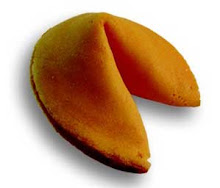In the final days here in Nanjing, I’ve been asked to give a presentation to some of the high schoolers in our program about “extracurriculars in the U.S.” Since I was a pretty “well-rounded” student, at least in high school, I feel pretty good about this presentation – except that it has to last for an hour and a half! An hour and a half on extracurriculars? This is going to be a stretch. So I thought, while preparing for my presentation on Thursday, that I would share some of the differences in the education systems here on NYAFC.
Doing this assignment I realized that I have to start from the very beginning. Most of these students have no idea what an extracurricular activity even is. School rules these kids’ lives over here. When their not listening to the teacher lecture during the school day, they are spending almost every waking hour studying. In my opinion, and in the opinion of most of my friends who are teachers here, there is a lot that could be improved with the Chinese education system. Many aspects of the education system in China are vastly different than the U.S.’s and, I would guess, most “Western” education systems.
First of all, most teachers teach by solely lectured-based classes. Sure, this sounds familiar. We’ve all had a class where the teacher lectured during the entire class. Not to interesting, huh? Well, imagine going to school every day and in every class your teacher was just spouting information at you. And forget about asking a question or questioning what the teacher is telling you – teacher is always right no matter what. Teachers sometimes seem to just go on and on and on without interruption and without really making sure that the students comprehend the information that their giving the students.
But how can they make sure their classes understand when there are typically 60+ students in a class? I used to think that my classes in high school of 30 were hard to deal with, but these students are sharing the classroom with 60 other students. With 1.3 billion people and growing, its not surprising that class sizes are out of control. But, I can’t imagine how hard it must be to be one of 60 in a class.
Probably the starkest contrast, however, is the way students learn here. With teachers regurgitating the textbook and hours on end spent rereading what their teacher just taught, there is a huge emphasis of rote memorization. They, like their teachers, focus on regurgitating information come test time. This kind of setting is incredibly limiting. They learn no problem solving skills, no critical thinking skills and no research skills, just to name a few. Looking back on my years of high school, class discussions, group projects and research papers (I know, I’m a nerd) were what I enjoyed most. Sure, I had to slave away learning and memorizing Calculus formulas, but I also had a balance of fun parts too.
Another questionable part of the Chinese education system is the Gao Kao, China’s university entrance exam. I could (and maybe should) write an entire post on just the Gao Kao alone – it is that big of a deal here. To put it into perspective, there are 4,352 colleges, universities and junior colleges in the U.S.. There are around 400 universities in China. Considering there are literally millions of students who apply to China’s universities, competition to get a spot in one of these schools is tough, to say the least. And their main way in is a high score on the Gao Kao. Students prepare for years for the Gao Kao and, rightfully so, is a source of incredible stress for Chinese students. And it is the main reason why students spend so much time studying and are not involved in extracurricular activities.
I could go on, but then this post would be entirely too long. Working in the “education area” of China has been an incredibly rewarding experience. With a mom for a teacher, I am a proponent for education and think it is probably the most important thing for young people. I love watching people and seeing these students hard at work is really inspiring. Sure, I had to work hard in high school, but these kids have a lot against them. Maybe an extracurricular activity or two would help lighten them up.
Apr 7, 2010
Subscribe to:
Post Comments (Atom)

No comments:
Post a Comment